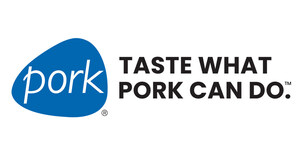
U.S. Pork's Commitment to Responsible Antibiotic Use Making a Difference
Scientific research, farmer and consumer education a key focus in 2017
DES MOINES, Iowa, Sept. 27, 2017 /PRNewswire/ -- Nine months after the full implementation of Food and Drug Administration (FDA) Guidance 209 and 213, America's pig farmers continue to demonstrate their awareness and commitment to doing what's right on the farm. Since the rules went into effect on Jan. 1, the National Pork Board has received only two calls into its farmer call center requesting clarification or information on the rule change.
"America's 60,000 pig farmers are keenly aware of the change occurring on farms, and they were clearly ready, willing and able to meet the requirements of these new rules," said Terry O'Neel, board president and a pig farmer from Friend, Nebraska. "To have just two calls into our call center tells me that the requirements are being met and our two-year proactive education plan has paid off."
FDA guidance 209 and 213 ends the use of medically important antibiotics for growth promotion and increases veterinarian oversight for on-farm antibiotic use through the Veterinary Feed Directive and prescriptions. All human medically important antibiotics administered to pigs in feed and water must have direct veterinarian oversight. This strengthens an already strong veterinary-client-patient relationship between pig farmers and their veterinarians. Both also take proactive pig management and biosecurity steps to increase the health of pigs and reduce the need for antibiotics.
Close to home, O'Neel recently completed the USDA National Animal Health Monitoring System (NAHMS) survey on his pig farm. The survey reviewed written antibiotic-use records from July through December 2016. During the survey with the Nebraska Department of Agriculture veterinarian, it was revealed that O'Neel had reduced his antimicrobial use.
"We've improved our herd health practices on our farm and are already seeing a reduced need for antibiotics, all while improving our pigs' health," O'Neel said. "Third parties who try to evaluate antibiotic-use policies do not account for or understand the real change underway on today's farms."
O'Neel added that, "Veterinarians and farmers work every day to protect the health and welfare of their pigs, reduce antibiotic use and lower the carbon footprint of pork production to raise the safest food possible. It is truly a delicate balance for America's pig farmers and it is perplexing when others try to set arbitrary limits on antibiotic use that are actually detrimental to animal health, the environment and food safety."
Among the highlights of the Pork Checkoff's 2017 work includes building new collaborative relationships with third parties focused on understanding antimicrobial resistance and antibiotic stewardship initiatives. In 2017, the National Pork Board took part in workshops with other agriculture industry stakeholders and a multitude of agencies and non-governmental organizations (NGO) representing environmental, consumer, retail, foodservice and allied industries.
"We are working to develop universal standards on antimicrobial stewardship," said Dr. Heather Fowler, director of producer and public health at the National Pork Board. "It begins with succinctly defining 'stewardship' so all of the players can build programs that are consistent across the board and where success is measurable."
Part of the effort will also focus on antibiotic resistance – a complex issue that affects both veterinary and human medicine. The U.S. Centers for Disease Control and Prevention (CDC) estimates that 47 million human prescriptions are not medically necessary, at least 30 percent of all prescriptions written. The Centers for Disease Control and Prevention has warned that antibiotic resistance is a pressing health problem and is why pig farmers are committed to doing their part in defining antibiotic stewardship.
The National Pork Board is also continuing its work with Dr. Peter Davies, University of Minnesota, to develop a models and metrics platform to demonstrate overall reduction in on-farm antibiotic use.
"We're in the process of finalizing the 2016 antibiotic usage benchmark data for the U.S. pork industry right now," said Peter Davies, professor of veterinary medicine at the University of Minnesota. "This will be an essential tool to improve understanding of antibiotic prescription practices and will better educate pig farmers on using antibiotics correctly to keep animals healthy."
Other 2017 projects include:
- Hosting a live webcast which brought together experts in farming, veterinarian medicine and the retail and foodservice industries. More than 60,000 viewers attended the event online and 400 pork producers were in the live studio audience. A replay of the broadcast can be viewed online at: RealChangeOnFarms.org.
- Participating in a panel discussion at the annual Global Ag Investing conference in New York City to address the shared responsibility of antibiotic use in both animal and human health.
- Hosting an Iowa farm tour with 20 journalist fellows of the National Press Foundation.
"Farmers understand their commitment to antibiotic stewardship and are making changes to their practices based on sound research and a commitment to animal welfare," O'Neel said. "Consumers can rest assured that medically important antibiotics are no longer used for growth promotion."
For more information on the National Pork Board's efforts to assist farmers and others who want to learn more about responsible on-farm antibiotic use, visit pork.org/antibiotics.
The National Pork Board has responsibility for Checkoff-funded research, promotion and consumer information projects and for communicating with pork producers and the public. Through a legislative national Pork Checkoff, pork producers invest $0.40 for each $100 value of hogs sold. Importers of pork products contribute a like amount, based on a formula. The Pork Checkoff funds national and state programs in advertising, consumer information, retail and foodservice marketing, export market promotion, production improvement, science and technology, swine health, pork safety and sustainability and environmental management. For information on Checkoff-funded programs, pork producers can call the Pork Checkoff Service Center at (800) 456-7675 or check the Internet at pork.org.
Contact: Kevin Waetke
National Pork Board
Office: 515-223-2638
Cell: 515-608-2558
[email protected]
SOURCE National Pork Board






Share this article